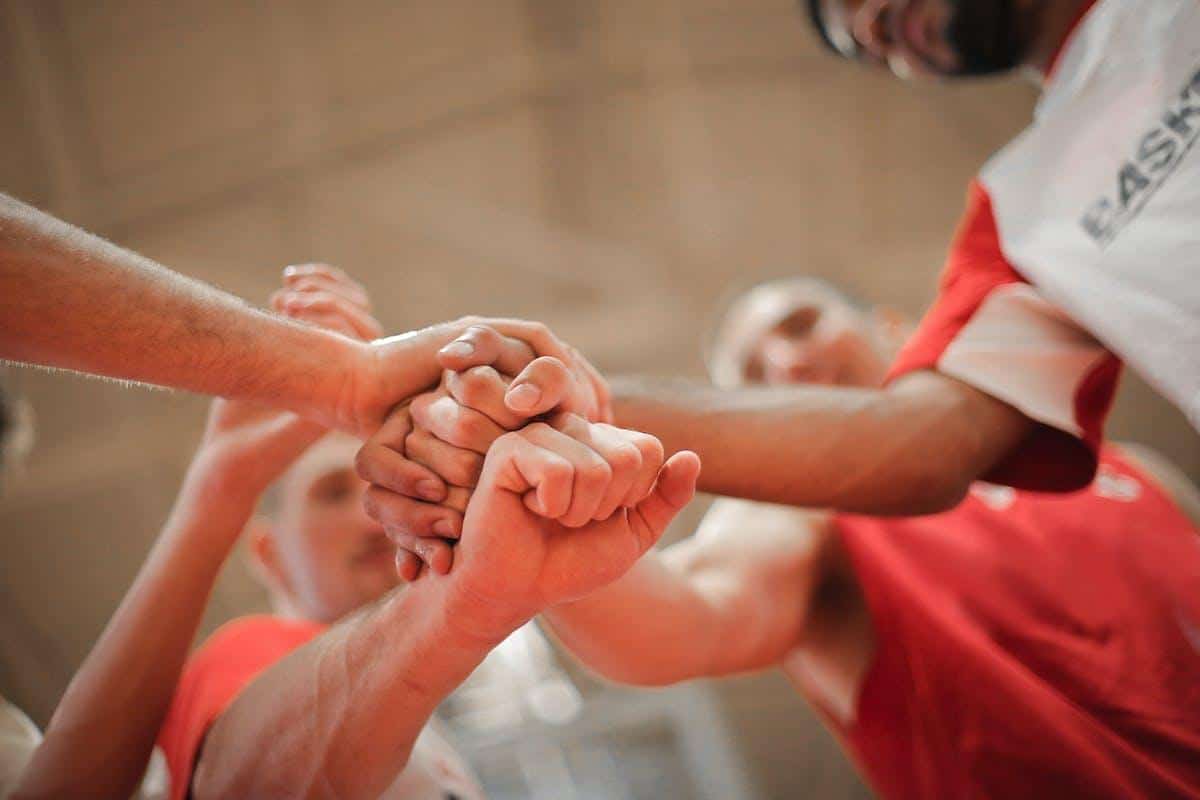Inmate support groups Orange County CA are playing a transformative role in the rehabilitation of those held within the correctional system. Providing an outlet for incarcerated individuals to express their fears, feelings, and experiences, these groups offer solidarity and understanding which are often absent in the confines of a prison cell. The importance of this emotional camaraderie cannot be overemphasiszed considering that it fuels self-transformation and reintegration into society.
Support groups provide the essential social connective fabric that can help inmates navigate the harsh realities of punishment. Living away from family, friends, and society at large can have severe psychological implications on prisoners. Feelings of isolation are teamed with immense societal pressures hardening any possibility of positive change. By offering a non-judgmental space to share personal hurdles experienced within incarceration, support groups assist in making this journey less arduous.
Moreover, these inmate support networks in Orange County CA play a critical role in rebuilding lost self-esteem and restoring belief among members that transformation is possible. A strong pillar in helping them face their guilt responsibly while instilling confidence in their ability to live meaningful lives post-prison hence addresses both individual challenges as well as broader societal benefits.
The work done by these entities not only changes lives but also positively affects communities – strengthening the fabric of our society at large.
Understanding the True Impact of Incarceration
The process of incarceration often triggers a series of emotional and psychological hardships that affect inmates. These struggles stem from the drastic lifestyle changes enforced by the penal system, isolation from family and society, as well as coping with guilt, shame, anger or regret.
The constant stress and trauma can lead to mental health issues like anxiety, depression and post-traumatic stress disorder (PTSD). Moreover, stigma associated with a criminal record continues well beyond release, making reintegration into the community an arduous task.
- Emotional Challenges: Attachment theory emphasizes our innate need for close emotional bonds. Prisons’ inherent punitive nature fractures these bonds causing feelings of abandonment, loneliness, hopelessness and erodes self-esteem. A 2017 study published in “Criminal Justice And Behavior” found that emotional disconnection predisposed inmates to parole violations demonstrating the importance of addressing this issue.
- Mental Challenges: Roughly half of the U.S prison population suffers from some form of psychiatric disorder as per a report by National Institute on Drug Abuse. Inmates endure high rates of suicide attempts and substance abuse disorders further emphasizing the need for mental health support.
- Societal Challenges: Post-release prisoners face societal stigmatization with limited employment opportunities contributing to financial instability. Research by Kirwan Institute suggests these reentry barriers can lead many back into criminal activities embarking on a perpetual cycle of recidivism.
Inmate support groups play a vital role in addressing these challenges holistically. Peer-to-peer discussions help inmates realize they are not alone fostering mutual empathy reducing feelings of isolation. By providing an outlet for self-expression they aid in processing emotions in a healthy way enhancing their resilience which is crucial for long-term rehabilitation.
Mental health professionals who work within these groups use various therapies – cognitive behavioral therapy being most common – aiming at creating healthy coping mechanisms and adaptive behavioral responses. They frequently involve family members into therapy sessions helping establish crucial support systems for inmates both inside and outside prisons actively involving in rehabilitation process.
Upon release, many inmates face difficulties with societal acceptance making their transition to normal life strenuous. Support groups strive to bridge this gap by forming networks of community services assisting with jobs, housing and education thereby playing a pivotal role in breaking the chain of recidivism.
In conversations surrounding criminal justice reform, understanding these multi-dimensional challenges is critical. Effective interventions require an empathetic perspective on what incarceration actually entails; this awareness will eventually guide reforms aimed at creating rehabilitative rather than purely punitive incarceration environments. Therefore, the value that inmate support groups bring – forming a constructive response system addressing comprehensive needs of prisoners – cannot be understated.
Inmate Support Groups Orange County CA
In Orange County, California, several inmate support groups are making a significant impact on inmates and ex-inmates. Offering much-needed spaces to share experiences, learn new skills and build connections, these groups act as powerful beacons of hope and solidarity in the stark world of incarceration.
Among these are organizations like Friends Outside in Los Angeles County (FOLA), which offers mentoring services to inmates; Project Rebound that assist former offenders who aspire to continue their education after serving their sentence; Homeboys Industries provides job training and rehabilitation services; Offender Aid and Restoration (OAR) aims at mitigating the effects of imprisonment through various supports like counseling, mentoring support services and much more.
These groups focus on creating an environment where inmates can openly discuss their concerns, hopes, and fears without judgment. They bring together current prisoners with ex-inmates who have successfully reintegrated into society.
The ex-offenders pass valuable insights onto current inmates about what they can expect upon release, boosting confidence and helping to lay down plans for successful re-entry. Moreover, by providing an opportunity for meaningful conversation between insiders (current prisoners) and outsiders (ex-prisoners), inmate support groups create a sense of mutual understanding that inspires all participants to look beyond the stigma commonly associated with being incarcerated.
| Inmate Support Group | Services Offered | Reach |
|---|---|---|
| FOLA | Mentoring Services | Serves hundreds of inmates annually |
| Project Rebound | Educational Advancement Assistance | Has helped over 150 former offenders since 1967 |
| Homeboys Industries | Job Training and Rehabilitation Services | Serving approximately 15,000 annually |
| OAR Orange County | Counseling services, Mentoring support services etc. | Assisted over a thousand inmates reintegrate into society successfully. |
While the exact impact of these groups can be hard to measure quantitatively, it’s evident that they’re making significantly positive strides in reconnecting inmates with their communities and promoting personal transformation. And by fostering feelings of solidarity among participants, these organizations are building a strong foundation for successful post-release reintegration.

Role of Solidarity in Prisoner Rehabilitation
The role that solidarity plays in prisoner rehabilitation cannot be overstated. It acts as a pivotal tool for setting the foundation of positive change. In an environment where an individual might feel isolated or ostracized, the aspect of being part of a group provides a form of social security and acceptance. Support groups foster this collective identity where individuals are indispensable parts of a whole. This sense of belonging triggers therapeutic well-being and promotes healing.
Inmate support groups operate under the understanding that shared experiences ignite camaraderie and unity, which are critical elements in facilitating personal transformation. When inmates share their stories and moments of vulnerability with each other, they develop empathy and compassion. This helps them to internalize their missteps without stigmatized judgement, creating an atmosphere needful for self-reflection and positive change. The subsequent scrutiny assists to reframe thoughts towards prosocial attitudes, helping shift from damaging mental habits to constructive thinking patterns.
Building solidarity within the inmate community assists in restoring hope and equipping individuals with crucial life skills necessary for combating recidivism upon reentry into society. These include skills such as conflict resolution, emotional intelligence, problem-solving abilities among others. Through this communal reliance, introspection replaces resentment; recovery takes place instead of retribution ushering the path for reform rather than punishment.
| Benefits | Description |
|---|---|
| Social Security & Acceptance | Being part of a collective identity provides prisoners with feelings of acceptance easing isolation stress. |
| Empathy & Compassion Development | Sharing experiences fosters mutual understanding triggering sympathy for others’ plight. |
| Life Skills Acquisition | Solidarity helps inmates gain skills such as emotional intelligence & problem-solving abilities which are key for reintegration into society. |
| Recovery & Reform | With solidarity, recovery takes precedence over retaliation and reform is valued over penalty. |
Case Studies
In an attempt to highlight the tangible effects of inmate support groups, a few representative case studies from Orange County can provide insightful reflections on the value of such initiatives. One striking instance involves John (name changed for privacy), who was incarcerated at the age of 22 for a violent crime. Overwhelmed by guilt and depression, he found solace in his local inmate support group, steeped in empathy and understanding.
The group helped him confront his past mistakes, redefine his identity beyond that of an offender, and chart out a course towards rehabilitation. Post-release, John has successfully reintegrated into society, securing a steady job and undertaking numerous community service efforts.
Another compelling real-world example is Sarah (name changed). After her 4-year tenure in prison for drug-related offenses, she was enveloped with fear about life outside the jail cell walls. On joining an inmate support group during the last year of her incarceration period, Sarah found not only emotional support but also practical guidance on adapting to life after prison.
The group provided resources on job hunting and housing search and helped orientate her towards local social services available upon release. Today Sarah lives a sober life, finds fulfillment in her work and is grateful for being granted another chance to contribute positively toward society.
The aforementioned case studies reinforce the instrumental role played by these inmate support groups in fostering personal growth and rehabilitation. However, it’s crucial to note that everyone’s journey is different and unique – highlighting the importance of personalizing this supportive framework according to individual needs.
Another notable evidence was observed in William’s case (name changed), where he struggled with major mental health concerns alongside his time served due to non-violent theft charges; despite receiving medical treatment in prison his mental state deteriorated resulting significant distress post-release.
His participation in a specifically targeted mental-health focused inmate support group assisted him immensely – peer-led discussions emphasized not just solidarity but emotional resilience that William needed desperately at that point. He began to internalize positive coping mechanisms, recuperate, subsequently becoming an advocate for mental health in post-incarcerated individuals himself.
The Transformative Power of Inmate Support Groups
Inmate support groups hold an immense transformative power that can foster personal growth in their participants. One of the key factors is leveraging group dynamics to promote positive change. Group interactions are powerful tools for creating an environment that allows inmates to share their stories, give and receive advice, and gain perspective on their behaviors and choices.
Hearing firsthand accounts from others who have faced similar struggles provides individual members with a newfound sense of belonging as they realize they are not alone in their experiences. This feeling of camaraderie within the group can help reduce feelings of isolation, which is prevalent among prison populations.
Another critical aspect of group dynamics in inmate support groups is the creation of a safe space for communication and self-expression. Many incarcerated individuals struggle with stigmatization and prejudice both inside and outside prison walls, making it difficult to express themselves honestly without fear of judgment or repercussion.

Inmate support groups provide a judgment-free place where every member has walked similar paths allowing individuals to openly communicate about feelings or situations they might otherwise keep hidden. This open communication fosters personal growth by leading to increased introspection, self-awareness, and reflections on past actions which are crucial steps towards rehabilitation.
Moreover, accountability partners often emerge within these supportive communities functioning as important motivators towards personal improvement among inmates. Peers encourage each other to stick with the rehabilitation process even when it becomes challenging or uncomfortable actively facilitating changes in attitudes and behaviors that lead to positive growth.
This sense of responsibility towards oneself as well as others spurs inmates not only to improve for their benefit but also for the collective good of the group demonstrating how participating in inmate support groups can significantly motivate transformational change in one’s life during and after incarceration time.
Spotlight on Providers
The Salvation Army
One of the oldest and most recognized organizations involved in inmate support and rehabilitation is The Salvation Army. In Orange County, this organization runs a series of programs targeted at helping inmates reintegrate into society by teaching them life skills and providing spiritual guidance.
Their “Behind the Walls” initiative places a strong emphasis on building relationships with inmates to foster a community-like atmosphere where they can feel supported. Additionally, their post-release program continues to provide assistance as ex-inmates adjust to life outside prison, offering vital services like job placement assistance and affordable housing options.
Homeboy Industries
Homeboy Industries is a leading supporter of rehabilitation efforts for former gang members and incarcerated individuals in Orange County. Founded by Father Gregory Boyle in 1988, this organization boasts an impressive track record, drastically reducing recidivism rates among its participants. It offers comprehensive resources such as employment opportunities within Homeboy Enterprises, mental health counseling, legal services, tattoo removals, and educational classes – all designed to help participants transform themselves into productive members of their communities.
The Anti-Recidivism Coalition (ARC)
A newer player in the realm of prisoner support in Orange County is The Anti-Recidivism Coalition (ARC), founded in 2013 by Hollywood producer Scott Budnick. This organization took an innovative approach to inmate rehabilitation by fostering a supportive network not just during incarceration but also upon release from prison.
ARC’s mission revolves around three core values – personal transformation through self-help and mutual support; direct engagement with policy issues impacting the incarcerated; and empowering formerly incarcerated individuals via mentorship programs which provide practical tools for change.
Each of these organizations plays a pivotal role in creating an environment conducive for inmate rehabilitation in Orange County. By focusing on solidarity, empathy and encouragement, they actively work towards ensuring each person passing through the prison system has every opportunity to build better futures after they leave prison.
How to Contribute or Get Involved in Inmate Support Groups
Getting involved or contributing to inmate support groups in Orange County CA goes beyond mere charity, as it forms part of a laudable journey toward societal transformation through individual rehabilitation. Regardless of what capacities you may find yourself in, there are several ways through which you can get involved or make valuable contributions. These mechanisms range from direct participation in support and advocacy work to indirect acts such as financial donations.
Direct involvement often necessitates becoming an active advocate for the cause. Most organizations that deal with inmate support are always keen to enlist volunteers willing to provide various forms of assistance based on their skills and capabilities.
For instance, tutoring in basic literacy and numeracy or offering guidance on vocational skills allows one to play a significant role in preparing inmates for life outside prison-a critical aspect of rehabilitation. Equally important is the provision of emotional support; being someone whom inmates can speak openly with about their fears and hopes can create a strong positive impact on their mental wellbeing.
For those capable but unable to commit time due to other obligations, making financial contributions serves as an admirable alternative route. Donations go towards facilitating program activities ranging from educational initiatives, life-skills workshops, therapy sessions to job-training ventures among others aimed at improving inmates’ prospects once they leave prison – ultimately promoting easier reintegration into society.
Apart from money, other suitable supplies like books, art supplies or even personal hygiene items are welcomed since they contribute significantly towards improving living conditions within prison environments which boosts morale and dignity among inmates – another critical factor toward effective rehabilitation.
The Future of Inmate Support Groups in Orange County
Considering Future Challenges
The vision for inmate support groups in Orange County remains ambitious; it is, however, not void of obstacles. The increasing number of inmates due to stricter law enforcement policies in California forces these support groups to face an uphill task.
Not only does the higher inmate population require more resources on the part of these organizations, but it also imposes a strain on the rehabilitation process. Scarce resources mean lower facilitator-to-inmate ratios, which may consequently lead to less effective programs.
Moreover, these groups grapple with social stigma associated with former inmates seeking help. Externally, curbing this misperception among the public and potential sponsors rests at core of their challenges. Internally, they must break through personal barriers by encouraging inmates towards self-acceptance and help-seeking behavior despite any societal prejudice.
Potential Advances and Innovations
Despite these challenges, inmate support groups in Orange County are not resigning to pessimism-they are geared toward embracing changes and advances for better outcomes. Technological evolution presents a myriad of opportunities for these entities to enhance their operations while effectively reaching out to more individuals who need help.

Innovations such as virtual reality (VR) therapy are seen as promising additions to correctional systems. These would allow inmates access to therapeutic settings virtually from inside prison walls-aiding them in coping mechanisms and socio-emotional learning effectively. Online platforms can also bridge the resource gap by allowing peer counsellors or psychologists from around the world offer their expertise to facilitate prison-based support group meetings.
Partnerships and Collaborative Efforts
Another significant development has been partnerships between inmate support groups and other community organizations or businesses that can provide employment opportunities once inmates reintegrate into society-an essential aspect that directly addresses recidivism rates. Furthermore, collaborations with academic institutions solidify research about effectiveness of various interventions used in rehabilitation process, further guiding these groups to refine their strategies.
The future of inmate support groups in Orange County, despite its challenges, gleams with potential. They continue to push the boundaries to create unprecedented transformation opportunities for former offenders-encouraging more holistic and communal recidivism prevention frameworks far beyond California’s borders.
Conclusion
Inmate support groups in Orange County, CA have proven to exhibit transformative power through fostering a sense of solidarity among participants. This study is a testimony to the effectiveness and vitality of these groups in prisoner rehabilitation and successful reintegration into society.
The support provided by such organizations far transcides the confines of a prison cell; it permeates these individuals’ lives, molding their perspectives and attitudes towards life, nurturing hope for a brighter future, and ultimately setting them on the path to healthy reformation.
It is essential to highlight that solidarity, woven through shared experiences of hardship that further leads to collective resilience, forms the very core of inmate rehabilitation via support groups. Through mutual encouragement powered by the solidarity principle, inmates discover strength within themselves to face challenges and break free from harmful habits or destructive thought patterns.
It’s this robust bond between inmates fostered by these support groups that provide them with motivation not just for short-term change but for lifelong transformation.
Finally, as we look forward at potential advances and inevitable challenges regarding the future of inmate support groups in Orange County CA, it’s critical to pay tribute once again to all involved organizations and charities. These individuals are dedicating their lives to change others’, partaking in an arduous journey towards an inclusive society that values rehabilitative justice over punitive justice.
In conclusion, it’s undeniable that the positive impacts of these inmate support groups extend far beyond prison walls – they cultivate genuine positive growth in participants’ character and attitude towards life itself. A well-supported prisoner doesn’t just serve his sentence; he serves as an exemplum for transformed living.
Frequently Asked Questions
What Organizations Help Prisoners After Release in California?
Many organizations in California are dedicated to helping prisoners after their release. One of these is the Anti-Recidivism Coalition (ARC), which provides a support network for formerly incarcerated individuals and advocates for fairer criminal justice policies.
The California Reentry Program offers educational and housing assistance, mental healthcare, and employment resources. Another organization, Prisoners with Children, provides legal services and runs programs specifically focused on strengthening relationships between former inmates and their children.
What Is Post Incarceration Syndrome?
Post Incarceration Syndrome (PIS) is a complex disorder affecting individuals who have spent significant periods of time in jail or prison and then attempt to return to mainstream society.
It’s characterized by a combination of substance use disorders, Post-traumatic Stress Disorder (PTSD), institutionalized personality traits combined with antisocial personality patterns, social-sensory disorientation, along with the guilt, shame, depression that stands associated with criminal behavior leading to incarceration.
What Is ACP Program for Inmates in California?
The Alternative Custody Program (ACP) in California is a voluntary program developed for eligible offenders that allows them to serve up to the last 24 months of their sentence in the community in lieu of confinement in state prison. ACP participants may reside at a private residence, transitional care facility or residential drug or other treatment program.
What Is the Returning Home Well Program in California?
The “Returning Home Well” Program run by the State of California focuses on preparing incarcerated persons for reentry back into society after they’ve served their sentences.
This includes providing resources like job search skills training sessions, housing assistance plans, physical and mental health support strategies along with drug rehabilitation options as well as general life skills coaching that include managing finances.
What Is the Long Term Offender Reentry Recovery Program California?
Dedicating its focus towards long term offenders looking forward to reintegrating into society post their sentence completion period; Long Term Offender Pilot Program (LTOPP) offered by CA Department Of Corrections & Rehabilitation takes care detention handling while also taking due care of rehabilitation needs tailored towards specific cases considering their sentence length.
The aim is to equip the offenders with skills, coping mechanisms and support needed to reduce their risk of recidivism and succeed in their communities when released.
What Is Project Rebound and What Does It Do?
Project Rebound is a program run by multiple California State University campuses that’s designed to help formerly incarcerated individuals transition into successful university-level academic programs. The project helps provide resources such as financial aid, counseling services, book loan programs, advising and mentoring services and so forth.
This assistance enables these individuals to overcome common barriers they face on reintegration into society while also achieving their dream of earning a college degree.
What Facility Started the California Reentry Program?
San Quentin State Prison, located in Marin County along the central coast of California was where the California Reentry Program initially began with its operations originating inside United States’ oldest prison in an effort to prepare inmates for successful reentry back into society post completion of their respective sentencing periods.
